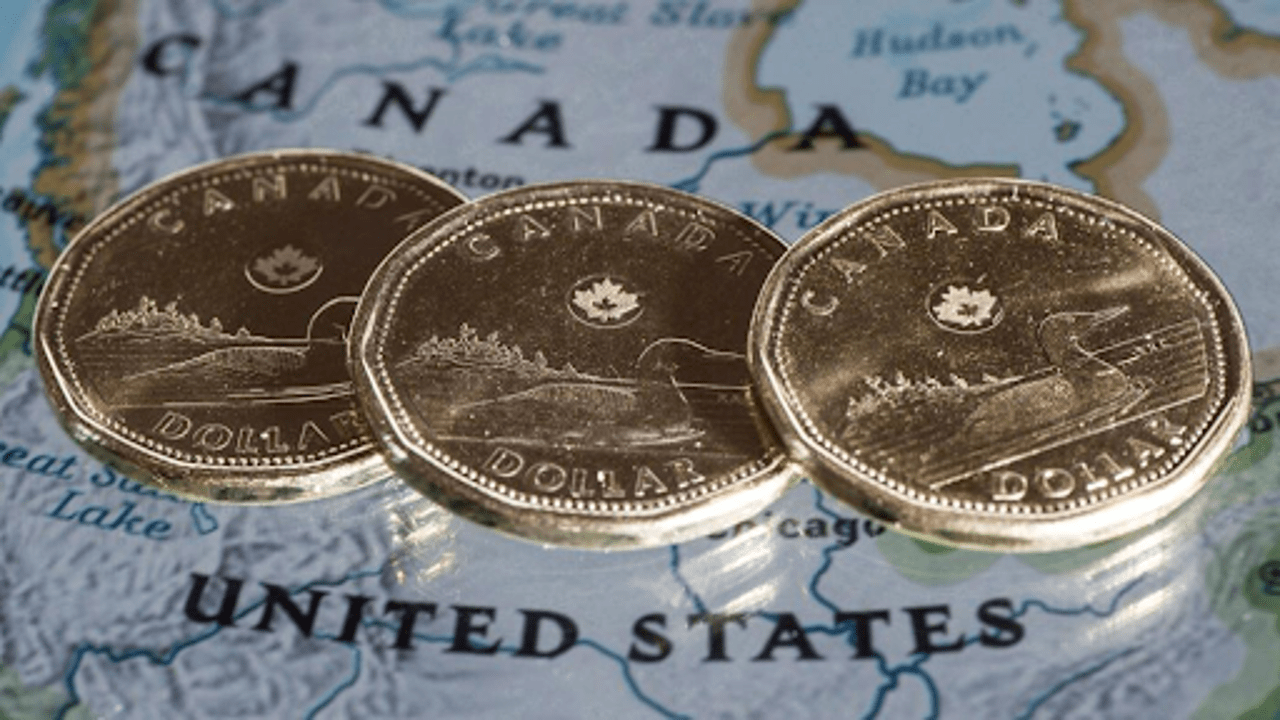
Canadian coins are displayed on a map of North America in Montreal on Thursday, January 9, 2014. Photo by Paul Chiasson/The Canadian Press.
The Canadian dollar, known as the loonie, dropped to its lowest value since May 2020 after Donald Trump’s recent announcement. The former U.S. president vowed to impose a 25% tariff on all Canadian and Mexican goods starting in January, citing the need to curb illegal border crossings and drug trafficking, specifically fentanyl.
This announcement sent ripples through financial markets, with the loonie slipping below 71 cents US early Tuesday before stabilizing slightly at 71.01 cents US by midday. The currency has been under consistent pressure since September, but Trump’s tariff threats have intensified concerns.
Trade Tensions Add to Economic Struggles
Economists point to existing vulnerabilities in Canada’s economy as contributing factors to the loonie's decline. Robert Kavcic, a senior economist at BMO Capital Markets, noted that the currency was already battling headwinds from slower domestic growth and recent interest rate cuts by the Bank of Canada.
The central bank has cut its key interest rate four times this year, most recently in October, bringing it to 3.75%. The shift in focus from controlling inflation to spurring economic growth has weighed on the currency.
Trump’s Threats: Reality or Bluff?
Trump’s social media post on Monday, made on Truth Social, declared his intent to maintain the tariffs until border control issues are resolved. However, Karl Schamotta, chief market strategist at Corpay, suggested that this could be a negotiation tactic rather than a concrete plan.
“Prime Minister Justin Trudeau has already shown signs of bending to Trump’s demands. History suggests Trump’s post is likely an opening move,” Schamotta commented. He believes traders may reassess the situation with more optimism, potentially easing pressure on the loonie.
Mixed Impacts of a Weaker Loonie
For Canadians, a weaker dollar could mean higher costs for cross-border shopping during Black Friday sales. However, it also has an upside: Canadian goods become more affordable for U.S. buyers, potentially softening the blow of any tariffs.
Due to their deeply integrated supply chains, certain industries, like oil and gas and auto manufacturing, might even escape the tariffs altogether. Kavcic highlighted that replacing Canada’s energy exports or disrupting automotive production is unlikely to be feasible for the U.S.
What Lies Ahead?
While Trump's tariff threats have rattled markets, their implementation remains uncertain. Investors and policymakers will watch closely as negotiations unfold in the months leading up to January. Meanwhile, the loonie’s trajectory will depend heavily on trade policies and Canada’s economic adjustments.















